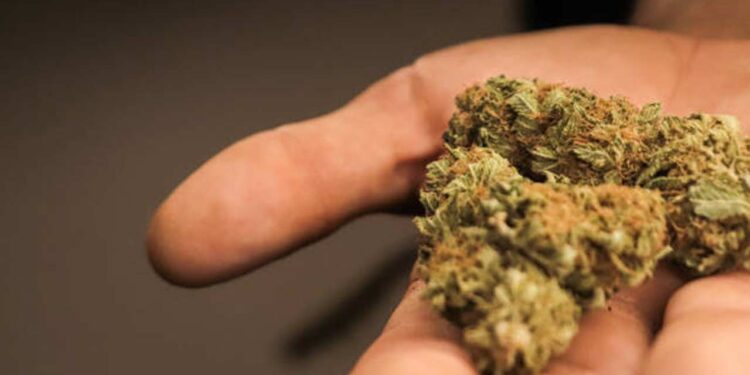CHICAGO, Ill. (WTVO) Cannabis legalization sales in Illinois have set a new record in 2023, taking over $1.6 billion, which is a 15 percent increase over the 2022 numbers.
It’s an unprecedented third year that has seen an increase in revenues for the business since Illinois allowed recreational use of cannabis legal for adults 21 and older on January 1, 2020.
As per the Illinois Department of Revenue, the state has collected $417.6 millions in tax on sales from marijuana dispensaries in 2023.
According to Gov. JB Pritzker’s office 42,124,741 items derived by this drug sold by 2023.
A report by the Headset in August 2023 revealed that the marijuana market in Illinois which is the third-largest marijuana market in the United States of America is among top of the list.
“Prices in Illinois are among the highest in the country,” Headset states. “The average cost of a product in Illinois is at present 89% more expensive than the average US market. The consumers over 41 are typically responsible for 36.4 percent of sales, however in Illinois they account for 42.1 percent of sales.”
Illinois residents can enjoy thirty grams of marijuana flower and five grams of concentrate cannabis and not more than 500 milligrams THC found in cannabis-infused products. Patients who are part of this pilot medical marijuana program can have more than 30 g of cannabis flower, however only if the flower is planted and secured at their residence in accordance with certain conditions.
Visitors from outside the state can travel in Illinois for a visit to a dispensary, however the amount they’ll be permitted to purchase is drastically decreased. Non-residents of Illinois can purchase fifteen grams of marijuana flowers, 2.5 grams of cannabis as well as no more than 250 milligrams THC found in a product infused with cannabis.
In the press release, Lt. Governor. Juliana Stratton said, “The legalization of cannabis for adult use is the beginning of lifting the communities hardest hit by the war on drugs. The proceeds of the sale of these products will be used to keep investing in economic growth in historically poor populations.”
In the Cannabis Regulation & Tax Act the state must prioritize minority-owned businesses based on “social equity” criteria that includes those who have been found guilty of previous cannabis-related offenses as well as those who live in an area that is “disproportionally impacted” by the War on Drugs.
A portion of the tax revenue that is generated by marijuana sales is given to communities that are minority, including Rockford. The city says that the tax revenue from legal substances were given to the local community youth program, those affected by gun violence, as well as providing job opportunities.
Based on reports from the Pritzker Administration, there are 133 of the applicants for the 2022 lottery for social equity and 55 chosen for the 2023 lottery are working towards receiving their licences.
in 2021 the State granted no of its 50 restricted licenses “social equity applicants” after the state discovered that there were there were no marijuana companies that were majority Black, Latino or women-owned because of an flawed score system.
The day after Illinois announced the record-breaking 2023 cannabis sales the Wall Street Journal released a report which found that doctors across the country are reporting an increase in the number of teenagers suffering from psychosis caused through cannabis consumption.
A doctor mentioned in the report blamed the increase in psychotic disorders due to the strength of contemporary marijuana strains.
Based on the U.S. Drug Enforcement Administration the average amount of THC the active ingredient in marijuana, increased by 11 percent in marijuana samples that it had confiscated, as compared to 1995. There are many modern products boasting THC concentrations as high as 90 percent.
According to an study published in 2017 published in The American Journal of Psychiatry, one psychotic episode resulting from marijuana use was linked to an increase of 47% in the likelihood of suffering from bipolar disorder or schizophrenia.















































